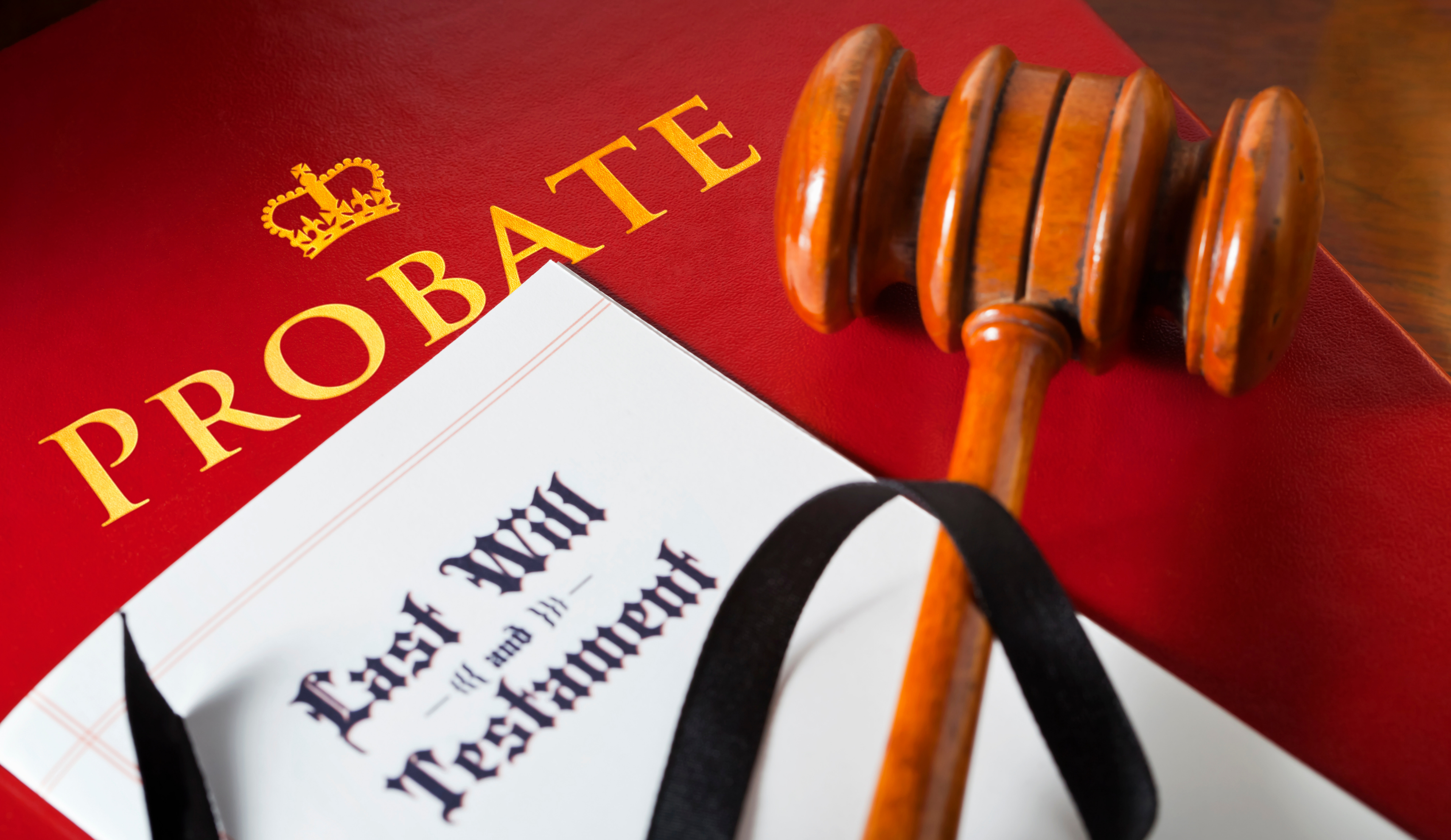When and How Do Minors Under 21 Years of Age Get Their Inheritance?
This article discusses how and when minors i.e. persons under the age of 21 in Singapore receive their inheritance
A person under 21 years of age is a minor and as a beneficiary he/she is not entitled to receive an inheritance until he/she reaches 21. Minor beneficiaries (including illegitimate children) who inherit from their deceased parent(s) must wait until then to claim their inheritance.
That being the case, how is the minor’s inheritance managed in the meantime, so that it can be turned over to them intact when they reach adulthood?
Table of Contents
When the Deceased Left a Valid Will
Transferring the Inheritance When the Beneficiary Turns 21
If an Inheritance is not Distributed
If the Deceased Left No Valid Written Will
When the Beneficiary Reaches 21 Years of Age
When an Inheritance Is Not Claimed
When the Deceased Left a Valid Will
If a Testamentary Trust was Created
A testamentary trust is created as part of a will for the purpose of holding specific assets “on trust” by a trustee on behalf of the beneficiaries who are still minors.
The trustee is appointed by the deceased and named in the will. This person is given the right to carry out the deceased’s instructions as to how the assets being held on trust are to be managed.
For the trustee to hold these assets on trust he/she must assume legal title to the assets on behalf of the minor beneficiary and manage them accordingly.
Therefore, when the deceased leaves a valid will behind that includes a testamentary trust, the trustee will hold the assets in his/her name and take over management of the assets according to the instructions of the deceased.
For example, the deceased may have created the testamentary trust for the purpose of holding funds to pay for the maintenance and schooling of his/her children. If that’s the case, the trustee will manage those funds, using them for those purposes only until each of the deceased’s children turn 21 years of age.
How does the trustee take over managing the minor’s inheritance?
Upon the deceased’s death, the executor of the estate who is named in the will by the deceased must apply to the court for a Grant of Probate.
The executor is responsible for managing the estate, which means carrying out the deceased’s wishes regarding distribution of the assets as a whole. But the trustee is only responsible for managing the assets left to the minor beneficiaries.
Clearly, the roles of the executor and trustee overlap and therefore the executor and trustee are often the same individual.
But when the executor and trustee are different individuals, the executor, once probate is obtained, must transfer the assets left to any minor beneficiaries over to the trustee for him/her to manage.
This may be as simple as withdrawing funds from the bank account(s) of the deceased and transferring those monies over to the trustee.
Or the executor may have no choice but to liquidate some or all of the deceased’s assets before the minor beneficiaries’ shares can be transferred over to the trustee.
The executor is typically required to show a certified true copy of the Grant of Probate before any assets can be sold or transferred.
The trustee is obligated to hold, manage, and disburse the assets being held on trust on behalf of the beneficiary. Some of the expectations and responsibilities of a trustee are as follows:
- Understand the terms of the trust as spelled out in the will;
- Safeguard the assets being held on trust;
- Maintain accurate up-to-date accounting records related to the trust;
- Maintain up-to-date information on relevant parties to the trust, which include the trustee him/herself, protector supervising the trustee, deceased, and beneficiary;
- Reveal that he/she is acting as a trustee to certain entities when handling transactions for the trust in specific situations.
If There is No Testamentary Trust
If no testamentary trust was ever created, the deceased’s assets cannot be held on trust. In this case, the executor must abide by his/her obligations of disbursing the assets in the estate according to the deceased’s instructions as stated in his/her will.
If a minor beneficiary was left specific assets, the executor must make sure that those assets ultimately go to the minor according to the instructions set forth in the deceased’s will.
This may require selling the assets (as discussed earlier) and distributing the proceeds to pay for the minor’s maintenance, education, and etc.
But, if a testamentary guardian is named, the executor will transfer the funds to the testamentary guardian for the minor beneficiary, who then is obligated to manage and use those funds for the benefit of the minor.
If a testamentary trust was not created by the deceased and included in his/her will, there will be no instructions on how the assets left to the minor beneficiary are to be managed. The executor is put in the position of guessing what the deceased’s intensions were regarding how the minor’s assets are to be managed and used.
Therefore, the executor may not manage the minor beneficiary’s inheritance in a manner that the deceased would have wished.
To avoid the same situation occurring upon your death, we recommend setting up a testamentary trust as part of your will while putting assets aside for your child(ren).
What is a testamentary guardian?
A testamentary guardian is someone named in the deceased’s will who legally takes over the role of parent upon the deceased’s death. He/she will assume responsibility for raising the deceased’s child(ren).
When a testamentary guardian is named in the will, he/she will be given custody of the minor beneficiary, and as such has decision-making power when it affects the minor’s welfare.
The following are some of the expectations and responsibilities of a testamentary guardian:
- Paying for the minor’s daily needs, maintenance and education;
- Managing the minor’s assets and investments;
- Transferring the assets to the minor beneficiary when he/she reaches 21 years of age.
Transferring the Inheritance When the Beneficiary Turns 21
Upon the minor beneficiary turning 21 years of age, the executor, trustee, or testamentary guardian are obligated to transfer the assets the beneficiary inherited over to the beneficiary.
This is when their responsibilities are discharged. They no longer have any accountability for the assets they once held for the benefit of the beneficiary when he/she was a minor.
If an Inheritance is not Distributed
The trustee is legally obligated to identify, find, and transfer the assets over to the beneficiary. This means that he/she must make a reasonable effort to find him/her and see that they claim the assets.
If the trustee fails to fulfil this responsibility, he/she risks being sued for breach of statutory and fiduciary duties.
By the same token, the executor or guardian are also subject to legal action if they do not uphold their obligations.
If the Deceased Left No Valid Written Will
When someone dies without having left a valid will, their next-of-kin may apply to the court for the Grant of Letters of Administration and to authorise someone to administer the estate of the deceased, in compliance with the Intestate Succession Act if the deceased was non-Muslim. The estates of Muslims need to comply with the Administration of Muslim Law Act.
Furthermore, the court requires the appointment of a co-administrator and a surety.
A surety is someone appointed to act as a guarantor, so if the administrators of the estate mismanage their responsibilities causing losses to the minor beneficiaries, the surety will ultimately be held financially responsible.
Public Trustee
If you are unable to obtain a co-administrator and/or someone to be the surety in order to be approved for a Grant of Letters of Administration, you can always apply to the Public Trustee to take on the role of managing the minor beneficiaries’ assets.
You can apply online but be prepared to provide information on the deceased. Upon approval, the Public Trustee will take over administering and ultimately distributing the assets that the minor beneficiary inherited.
The Public Trustee will be responsible for investing the funds held on trust and when the beneficiary turns 21, the trustee will transfer the assets over to the beneficiary.
There are statutory fees that must be paid for the Public Trustee to invest the assets on behalf of the minor beneficiary:
|
Amount of Earned Interest |
Fee |
|
On the first $1,000 |
5.50% |
|
On the next $1,000 |
4.50% |
|
On the next $1,000 |
3.50% |
|
On amounts over $3,000 |
2.25% |
*as per the Ministry of Law website
The minor’s guardian may apply to the Public Trustee for a maintenance allowance to support the minor. The Public Trustee will then evaluate all the documents proving their status as the testamentary guardian of the minor beneficiary, along with their financial situation before deciding how much of an allowance is needed.
The types of financial documents that the Public Trustee will need would be bank statements and/or monthly pay stubs.
If your application succeeds, your maintenance allowance will be deposited into the joint bank account you have with the minor beneficiary every three months via GIRO.
When the Beneficiary Reaches 21 Years of Age
Two weeks prior to the 21st birthday of a minor beneficiary, the Office of the Public Trust will contact him/her by mail with instructions on how he/she can claim the money being held on trust for him/her.
All the minor beneficiary has to do to claim his/her funds is follow those instructions and provide the required documents. For further information, click here.
The beneficiary can expect to receive his/her trust money within four weeks of his/her 21st birthday, or from the date the documents are received by the Office of the Public Trust, whichever comes later.
When an Inheritance Is Not Claimed
When a minor beneficiary does not claim their inheritance upon turning 21 years of age, the Public Trustee will hold his/her money until he/she finally does make a claim and provides the following documents:
- Front and back sides of NRIC
- Front page of bank account statement or passbook
The submissions can easily be made online by going to the “Submissions of Supporting Documents” section of the website. The funds will then be transferred into the beneficiary’s bank account within four weeks.
Note: During the time that the trust money remains unclaimed, the Public Trustee will not be investing the money.
As you can surmise from the information in this article, distributing an inheritance to a minor beneficiary involves comprehensive estate planning. A valid will must be written with executors and/or trustees appointed to manage and disburse the assets as needed until the minor reaches age 21.
For assistance in your estate planning, we would be happy to refer you to our highly regarded probate lawyer partners who can ensure that your loved ones are well provided for when you’re no longer here to take care of them.
Disclaimer: The information provided in this article does not constitute legal advice. We recommend that you get the specific legal advice you need from an experienced attorney prior to taking any legal action. While we try our best to make sure that the information provided on our website is accurate, you take a risk by relying on it.
At Pinnacle Estate Agency, we strongly believe in sharing our real estate knowledge to the public. For more content like this article, check out our Singapore Property Guides.














